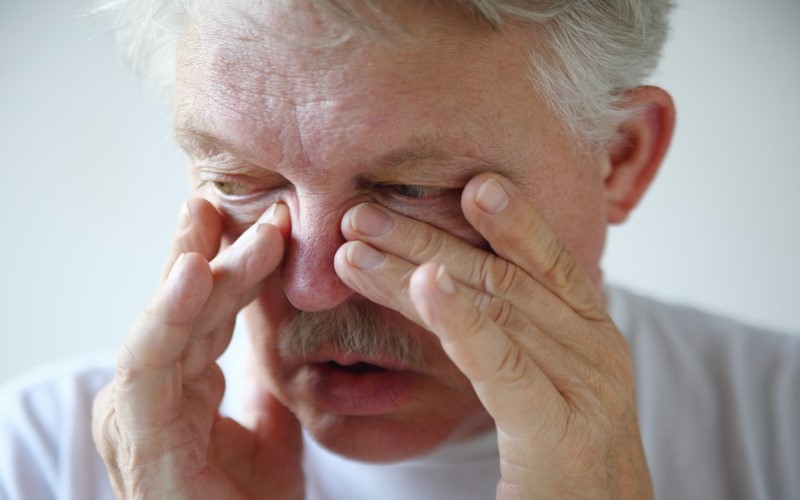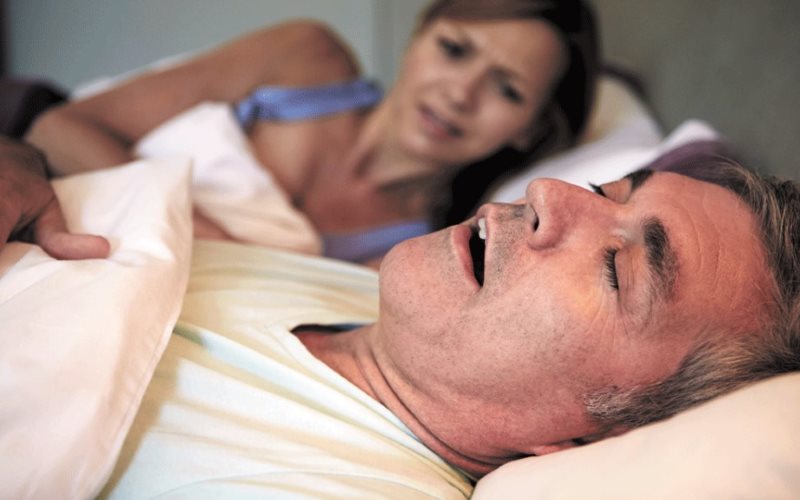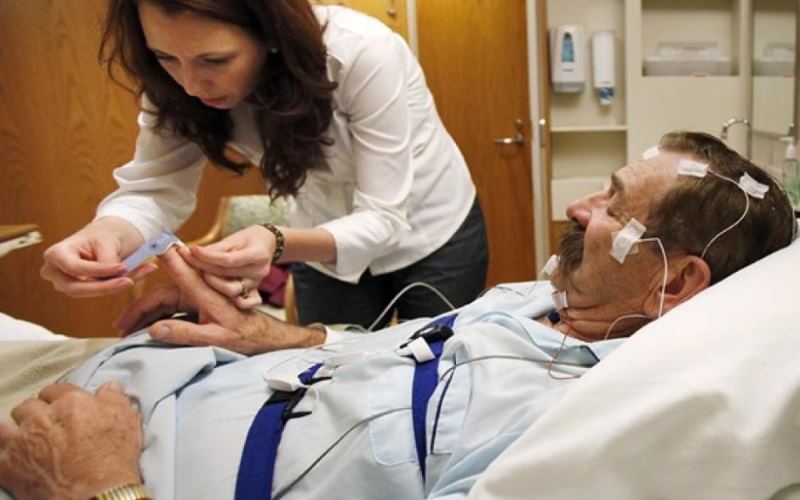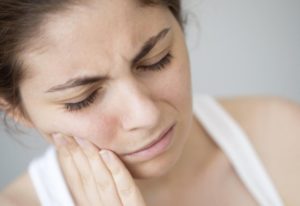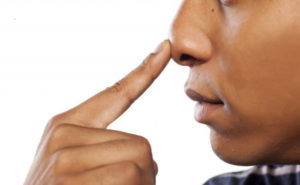Nasal congestion and sleep apnea are both breathing problems that affect different parts of the respiratory system. Both can lead to snoring and sleep disruption. But is there a connection between the two? Does nasal congestion cause sleep apnea, or is it the other way around? How do you treat nasal congestion sleep apnea? This guide will answer these questions.
To learn the connection between the two, you first need to understand the nature of each and their differences. Here’s a quick explanation:.
What is nasal congestion?
Characterized by a stuffy nose, nasal congestion causes sinus cavities to inflame. The spaces in the nasal cavities (between the eyes, behind the forehead, cheeks and nose) must be open for air to flow and to breathe freely. Tiny hairs and a thin layer of mucus protect the sinuses by catching bacteria and various pollutants. The nasal cavity drains these outside pollutants harmlessly around every 10 minutes.
However, there are times when the body produces too much mucus, and this can start to build up in the nasal cavity causing inflammation and infection. This is called sinus infection (also known as sinusitis). This could also come with other painful symptoms, such as:
- Difficulty breathing
- Sinus pressure
- Facial pain
- Headache
- Fatigue
What is sleep apnea?
Sleep apnea (also known as obstructive sleep apnea or OSA) is a sleep disorder that is potentially dangerous as it causes disruption in breathing patterns during sleep. It is characterized by repeated pauses in breathing during sleep and loud snoring. The pauses can happen 30 times (or more) an hour, and last between 10 seconds and one minute. Since it interrupts breathing, it disrupts the body’s intake of oxygen and blood to the arteries and to the brain.
Sleep apnea and snoring happen when the throat muscles relax and collapse, whether partially or completely, causing a blockage to the airway. When the brain senses that the body is unable to breathe normally, it forces someone to jolt and wake up. This pattern can happen multiple times a night.
The commons signs and symptoms of sleep apnea include:
- Loud snoring
- Choking and gasping for air during sleep
- Waking with dry mouth and/or sore throat
- Morning headache
- Daytime fatigue and sleepiness
- Irritability
- Concentration problems
- High blood pressure
- Waking up frequently to urinate
To put it simply, nasal congestion blocks the nasal passages, while sleep apnea blocks the throat. The latter is a disorder that causes breathing to repeatedly stop and start. The former, on the other hand, is a condition that causes inflammation and swelling on the tissue lining of the sinuses, making it hard to breathe and forcing someone to breathe through their mouth.
In many cases, nasal congestion often gets worse at night. This is because it is more difficult for the body to clear the nasal cavity from mucus when lying down. Also, the increase of blood flow heightens stuffiness caused by infection. In some cases, stomach acid can cause irritation in the nasal passages and throat.
Sinusitis Is a temporary infection. The body normally clears itself naturally from infection but may need some antibiotics. Either way, as soon as it is treated, you will start to breathe through your nose normally. Sleep apnea is a bit more complicated as it is a sleep disorder that requires management and may even require a medical procedure (surgery). Though it is usually benign, it can get worse overtime. Also, there are no medication-based treatments for it.
Does Nasal Congestion Cause Sleep Apnea?
Congestion is the main cause of both chronic sinusitis and sleep apnea. There are multiple conditions that contribute to sinusitis and snoring, such as allergies, humidity, obstruction in the sinus (nasal polyps), enlarged turbinates/deviated septum, and even obesity.
While there are lots of similarities between the two, the connection is still unclear. According to a scientific report in 2016 that studied 971 sleep apnea patients and 4855 patients who did not suffer from sleep apnea, only 7% of sleep apnea patients were diagnosed with sinusitis. Only 2% without sleep apnea had sinusitis.
The 5-year long study suggests the correlation was not significant. Therefore, those diagnosed with sleep apnea do not necessarily develop sinusitis, and vice versa. However, there is a small increase in risk of developing sinusitis among sleep apnea patients.
Since nasal congestion symptoms make it difficult to breathe normally while sleeping, people suffering from chronic sinusitis who do not properly treat their nasal problems are prone to develop sleep apnea. Fortunately, sleep apnea caused by sinusitis can be treated effectively if the sinusitis is treated first.
Types of Nasal Congestion at Risk for OSA
There are two types of nasal congestion that increase the risk of sleep apnea.
- Anatomical issues – People with nasal congestion caused by problems in their anatomical structure have a higher risk of chronic sleep problems and obstructive sleep apnea. In this case, it is important to seek medical help. Doctors may recommend surgical intervention as a last resort solution.
- Chronic allergies – People with chronic allergies will consistently suffer from nasal congestion and may develop sleep apnea. They are, however, not mutually exclusive. Sinusitis that leads to sleep apnea caused by allergies and seasonal colds may need the help of Continuous Positive Airway Pressure (CPAP – a machine that sends steady flow of oxygen to the nose and/or mouth as you sleep) to get better quality of sleep.
Doctors diagnose obstructive sleep apnea through a sleep study. Based on their sleep test, they can recommend the right course of action (usually with a CPAP machine).
How to Treat Nasal Congestion Sleep Apnea
If you constantly suffer from nasal congestion at night, and wake up every morning with a headache, feel tired throughout the day, or wake up gasping for air in the middle of the night, you may be experiencing nasal congestion sleep apnea. While sleep apnea requires lifestyle changes, a breathing machine, or even surgery, nasal congestion can be treated with medications and simpler forms of treatments.
Balloon sinuplasty is a form of endoscopic nasal procedure that involves the use of a small balloon to inflate and drain the nasal sinuses. It is often used to treat nose blockages, sinus inflammation, and severe rhinosinusitis.
The best way to deal with either sleep apnea or sinusitis is to consult your physician or sleep doctor. Do not ignore these respiratory problems as they can lead to bigger health complications such as vision problems, serious infection, heart disease, or even depression.

